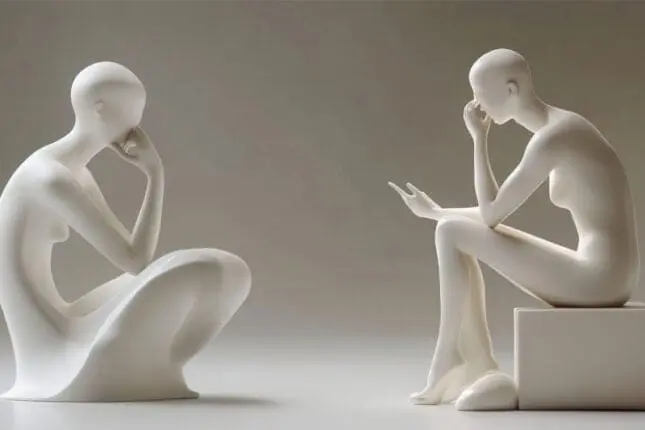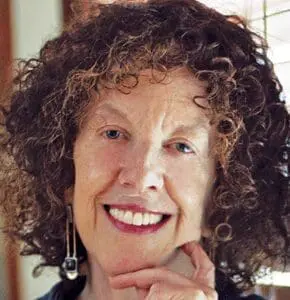Listening with an open heart is the ultimate spiritual act. It’s one of the greatest gifts we can give to others and ultimately to ourselves. Our capacity for kindness, compassion, connection, and emotional presence, even in the face of criticism and great differences, will rise or fall in direct proportion to our capacity to listen well.
I was taught in a graduate school class that listening is a passive process, but this is not so. It’s an active process, one that comes less naturally than talking. A good listener does more than just sit there and make empathic grunts.
True listening requires us to quiet our mind, open our heart, and ask questions to better understand what the other person is saying. It also requires that we stop ourselves from interrupting and saying things that leave the listener feeling unheard or cut short. It requires us to get past our defensiveness when someone is saying things that we don’t want to hear, and to instead allow their voice and pain to affect and influence us. And it requires that we know when we’re not able to listen well and say, not now, or not in this way.
No words capture the quality of pure attention that occurs when we listen best, when we are fully emotionally present without judgment or distraction, when we are open and receptive to what the other person is saying without having to change, fix, correct, or advise, when we are there with that person and nowhere else. We’re all capable of much deeper levels of listening than we may ever realize, a lesson I learned when I least expected it, taking me by surprise.
I was participating in a seminar on transformation and spiritual growth, held in the Arizona desert and led by an extraordinary teacher, the late Carolyn Conger. The experience concluded with a solo retreat in the desert where we spent two days fasting and practicing total silence. Afterward, as we gathered together, one woman shared her profound sense of aloneness and despair during the experience. As she spoke, I felt fully present with her and with the others in the group in a way I’d never experienced before. Compassion, connection, detachment, and appreciation for the sacred came together in this pure moment of listening and unconditional love. We have only to experience something once to know of its possibility.
In everyday living, of course, we give and receive a fair amount of divided and partial attention. This is a natural way to move through the day. When it matters, however, the challenge is to shift out of a distracted or defensive mode and summon a different quality of emotional presence. As with meditation or yoga, wholehearted listening requires, well . . . practice. Yet the reality is that most of us are far more motivated to improve our talking skills than to attend to the other half of the conversational equation. Sometimes, however, the Universe may send us a painful lesson that sparks our motivation to listen better.
Consider my friend Audrey, who’s a wonderful storyteller. The only child of doting, ambitious parents, she was rewarded, if not glorified, for her talent with words, her precocity, the way she could entertain and impress her parents’ friends and other adults. She carried this behavior unmodified into her own adulthood. When another person would tell a story, she often grabbed the first empty space by saying, “That reminds me of something that happened to me,” or she’d just jump in to tell a story about her incredible trip to Paris or her near-death experience hailing a cab in Chicago. People were impressed, but I suspect they also felt the absence of a deep, mutually enhancing connection. It’s a terribly lonely feeling when you share something painful or intimate and the other person says, “I know just how you feel,” and off they go with a story of their own.
A turning point came when a group of friends were having dinner together and a man named Stanley was asked about his daughter’s recent diagnosis of ovarian cancer. Not too long after he began speaking, Audrey turned the conversation to her own experience with a serious health scare when she was in college. A few minutes into her story, Stanley suddenly started sobbing. He collected himself at once and offered a simple apology. “I’m sorry, Audrey,” he said softly. “I didn’t mean to interrupt. I just can’t listen to this right now. I’m too frightened about my daughter.”
Of course, Stanley had no reason to apologize, and Audrey knew that. She felt ashamed of her insensitivity. This painful event led her to a new level of insight and capacity for self-observation. Audrey told me that Stanley’s tears made her feel like the Wizard of Oz when Toto pulled the curtain off its track and exposed a big phony. But what Stanley had exposed, really, was the fact that Audrey was an ordinary, flawed, uncertain human being, like the rest of us.
Audrey decided to practice listening. She experimented with entering conversations with the intention to only listen, which meant staying curious and asking questions that allowed her to better understand the other person’s experience without quickly turning the conversation to herself. Obviously, Audrey didn’t change her habitual conversational style with one gigantic act of will. But over time, her commitment to a “listening practice” led her to a greater sense of ease being among people, more connectedness, less judgment, less need to display her “exceptionalism,” and more awareness of how her words and the quality of her attention affected others. She became a kinder, more open-hearted person, more compassionate toward others and toward herself.
It’s widely recognized that listening to our inner dialogue, as with meditation or mindfulness, is a practice integral to many spiritual traditions, while the practice of listening to others might be glibly viewed as acquiring new communication skills. Yet both paths are inextricably interwoven and circularly entwined. Just as the practice of being present and attentive to our own thoughts and feelings can serve as a bridge to deeper empathic engagement with others, it works the other way around as well.
For as long as we’re human, we’ll have difficulty listening to people say what we don’t want to hear. Wholehearted listening is challenging enough with the “easy” people in our lives, or with those who matter most. I’m only partly joking when I suggest to my colleagues that listening-deficit disorder should be added to the DSM. We all have LDD under stress. But when defensive listening is our habit and our practice, we cause great pain to ourselves, to others, and to the web of interconnectedness in the world we live in.
How we listen shapes whether we become larger or smaller selves, whether we enhance or diminish others, whether we connect deeply in relationships or fail to, whether we shrink or expand the possibilities for loving kindness and a recognition of the shared humanity that connects us all. If only our wish to understand the other person were as great as our passion to be understood. It takes a grand leap of imagination to even begin to imagine what such a world might look like.
Harriet Lerner
Harriet Lerner is one of the most respected voices on the psychology of women and marriage and family relationships. For more than three decades, she was a staff psychologist and psychotherapist at The Menninger Clinic in Topeka, Kansas, and a faculty member and supervisor in the Karl Menninger School of Psychiatry. Currently in private practice in Lawrence, Kansas, she is the author of numerous scholarly articles and 12 books, including the New York Times best-seller, The Dance of Anger, and Why Won’t You Apologize: Healing Big Betrayals and Everyday Hurts.













